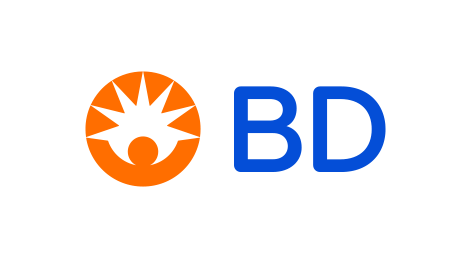CD43 / Brilliant Ultraviolet 737 / L60
Product Details
| Description | BUV737 Mouse Anti-Human CD43 | |
|---|---|---|
| Conjugate | Brilliant Ultraviolet 737 | |
| Clone | L60 | |
| Target Species | Human | |
| Applications | FC | |
| Supplier | BD Biosciences | |
| Catalog # | Sign in to view product details, citations, and spectra | |
| Size | ||
| Price | ||
| Antigen | ||
| Host | ||
| Isotype |
About CD43
This gene encodes a highly sialylated glycoprotein that functions in antigen-specific activation of T cells, and is found on the surface of thymocytes, T lymphocytes, monocytes, granulocytes, and some B lymphocytes. It contains a mucin-like extracellular domain, a transmembrane region and a carboxy-terminal intracellular region. The extracellular domain has a high proportion of serine and threonine residues, allowing extensive O-glycosylation, and has one potential N-glycosylation site, while the carboxy-terminal region has potential phosphorylation sites that may mediate transduction of activation signals. Different glycoforms of this protein have been described. In stimulated immune cells, proteolytic cleavage of the extracellular domain occurs in some cell types, releasing a soluble extracellular fragment. Defects in expression of this gene are associated with Wiskott-Aldrich syndrome. [provided by RefSeq, Sep 2017]
This gene encodes a highly sialylated glycoprotein that functions in antigen-specific activation of T cells, and is found on the surface of thymocytes, T lymphocytes, monocytes, granulocytes, and some B lymphocytes. It contains a mucin-like extracellular domain, a transmembrane region and a carboxy-terminal intracellular region. The extracellular domain has a high proportion of serine and threonine residues, allowing extensive O-glycosylation, and has one potential N-glycosylation site, while the carboxy-terminal region has potential phosphorylation sites that may mediate transduction of activation signals. Different glycoforms of this protein have been described. In stimulated immune cells, proteolytic cleavage of the extracellular domain occurs in some cell types, releasing a soluble extracellular fragment. Defects in expression of this gene are associated with Wiskott-Aldrich syndrome. [provided by RefSeq, Sep 2017]
About Brilliant Ultraviolet 737
Brilliant™ UltraViolet 737 (BUV737) is a near infrared-emitting tandem fluorophore that combines BD Horizon® BUV395 and an acceptor dye. It can be excited by the 355 nm ultraViolet laser and collected using a 740/35 bandpass filter. BUV737 has an excitation peak at 498 nm and an emission peak at 732 nm BUV737 has a medium/high relative brightness, and is most commonly used for multicolor flow cytometry. This dye is part of the Brilliant™ UltraViolet dye family, developed and sold by BD Biosciences. This family of dyes uses BUV396 as the donor so that all dyes in the family can be excited by the 355 nm ultraViolet laser. Depending on the acceptor, the dyes in this family have different relative brightness ratings.
Brilliant™ UltraViolet 737 (BUV737) is a near infrared-emitting tandem fluorophore that combines BD Horizon® BUV395 and an acceptor dye. It can be excited by the 355 nm ultraViolet laser and collected using a 740/35 bandpass filter. BUV737 has an excitation peak at 498 nm and an emission peak at 732 nm BUV737 has a medium/high relative brightness, and is most commonly used for multicolor flow cytometry. This dye is part of the Brilliant™ UltraViolet dye family, developed and sold by BD Biosciences. This family of dyes uses BUV396 as the donor so that all dyes in the family can be excited by the 355 nm ultraViolet laser. Depending on the acceptor, the dyes in this family have different relative brightness ratings.
Experiment Design Tools
Panel Builders
Looking to design a Microscopy or Flow Cytometry experiment?
Validation References
Reviews & Ratings
| Reviews |
|---|
Looking for more options?
1722 CD43 antibodies from over 44 suppliers available with over 94 conjugates.





